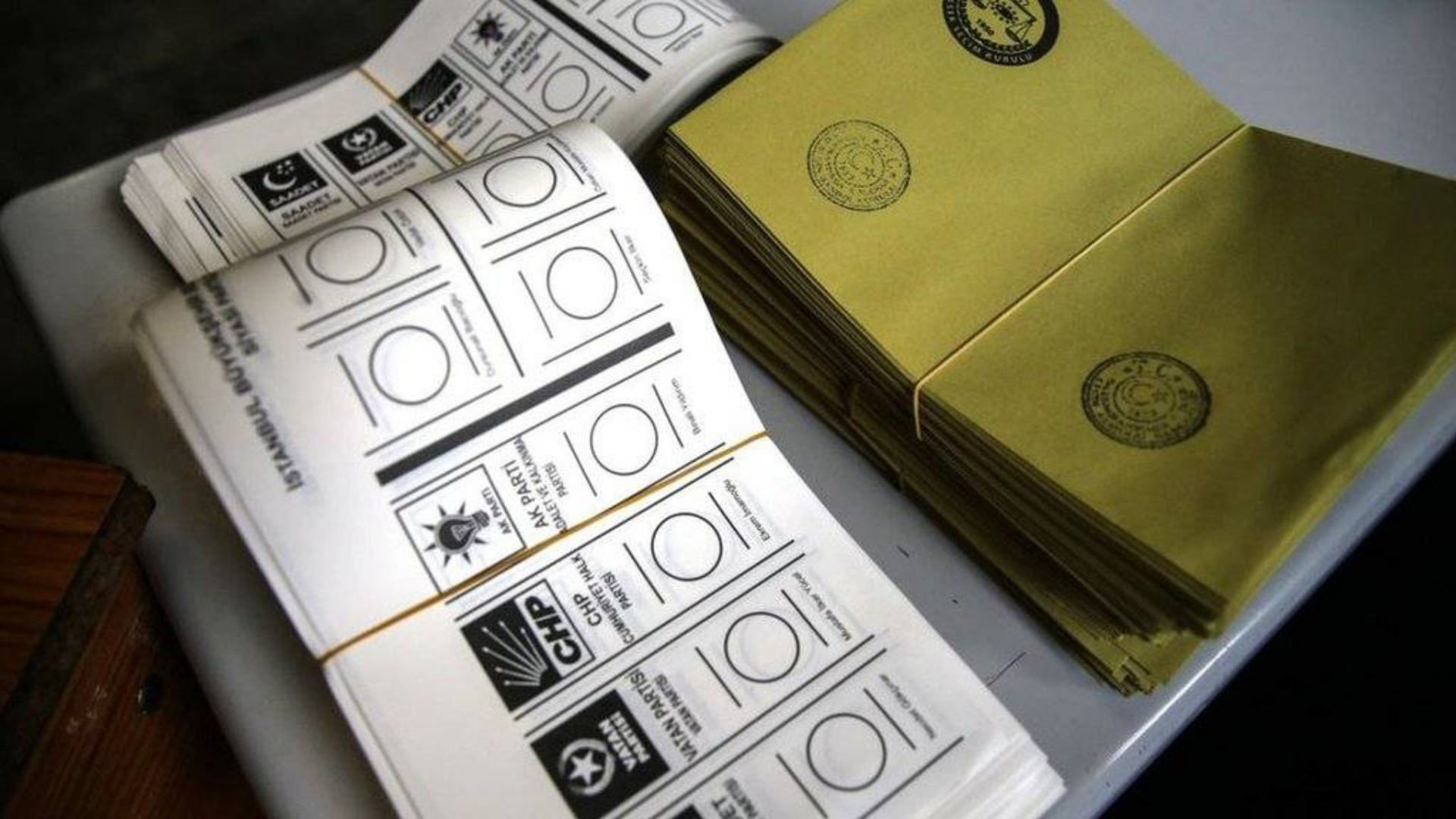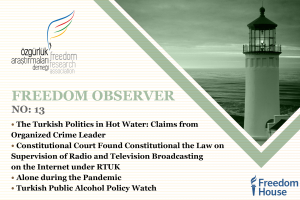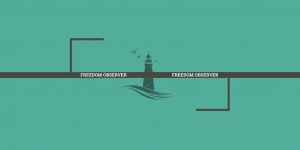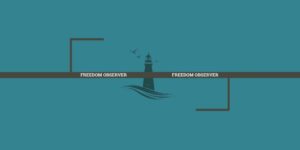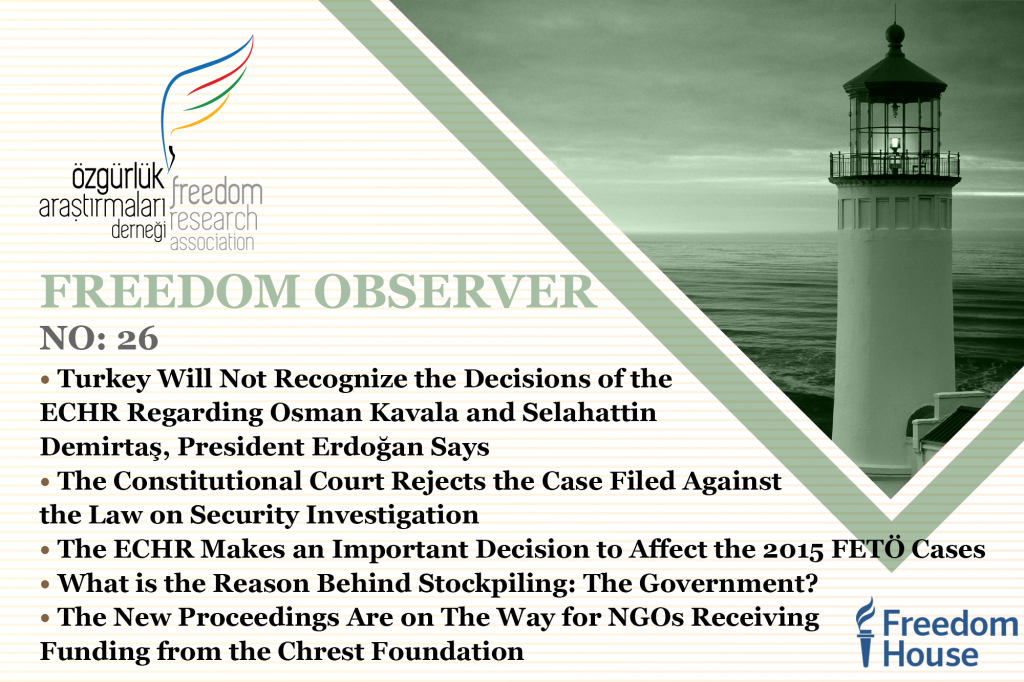
From Editor-in-Chief
Among the developments in Turkish politics after the last Bulletin, President Erdogan’s statement that the Turkish government does not recognize the Kavala and Demirtaş decisions of the European Court of Human Rights (ECHR) stands out. It is clear that this statement and the previous ones are contrary to Turkey’s commitments to the Council of Europe and deeply hurt Turkey’s prestige in the international arena. Moreover, such statements also manifest an outright challenge to Turkey’s own Constitution.
The fact that Osman Kavala was not released at the hearing on November 26 seems to be proof that the Turkish government will not change its stance on this issue. However, this may not mean that the Turkish government’s stance is set in stone and the possibility of an optimistic development has not completely disappeared. This is because of the fact that the Committee of Ministers’ request for Turkey to express its opinion on the decision before the issue is taken to the ECHR as a result of “violation procedure” by 19 January can be interpreted as Turkey’s last chance in this regard, considering that the next hearing in the Kavala case will be held on 17 January. Meanwhile, in the face of the Committee’s statement that it will discuss the Demirtaş case at its meeting next March, with the implying that it may initiate a new “violation procedure”, the possibility of further resistance to refusing to comply with the ECHR rulings weakens unless Turkey is willing to completely turn its face from the Western world.
What is interesting is that while these developments are taking place, the ECHR continues to issue new violation decisions against Turkey. After the decision we announced in the previous Editorial, which found that the detention of hundreds of judges, including members of the high court, after the failed coup attempt in 2016 was unlawful, the Court has now issued a new violation decision that could affect the cases against members and sympathizers of the Gülen Movement. According to the court, a citizen was found guilty of praising the crime of the coup and its perpetrators because of his critical posts about the government on his social media account more than a year before the coup attempt in July 2016 constitutes a violation of the Convention since there was not a legal determination establishing that the Gülen Movement was a criminal organization as of that date.
However, this sensitivity of the ECHR on fundamental rights does not seem to be shared by the Constitutional Court of Turkey. As a matter of fact, the rejection of the annulment lawsuit filed by the opposition with the allegation that the law behind the security investigation is against the Constitution in terms its form shows the Turkish Constitutional Court’s reluctance to curb the oppressiveness of the AKP-MHP ruling bloc. It has also become a new example that shows that The Constitutional Court will remain reluctant in the face of obvious unlawfulness perpetuated by the majority of the same ruling bloc in the Grand National Assembly of Turkey.
In the meantime, a burning issue that we drew attention to in previous issues of the Freedom Agenda is still relevant. This is the problem of the use of Law No. 7262, which was enacted to prevent so-called money laundering, as a tool of pressure by the government especially on non-governmental organizations with external connections. Recent developments show that the relevant public authorities are trying to keep the pressure alive and kicking by tightening their controls on associations receiving foreing funds. As a matter of fact, it has been announced that an administrative and judicial investigation will be initiated by the public authorities regarding the donations made by the US-based Chrest Foundation to non-governmental organizations operating in Turkey. The fact that nationalism in Turkey is penetrated into the very fabrics of the society, the government’s oppressive control blended with nationalist themes of “external links” and “aid received from foreign countries” serves as the “Sword of Damocles” on non-governmental organizations.
In long story short, Turkey’s record of freedom continues to deteriorate dramatically each and every day.
Turkey Will Not Recognize the Decisions of the ECHR Regarding Osman Kavala and Selahattin Demirtaş, President Erdoğan Says
One of the most important cases showing the erosion of the rule of law and the independence of the judiciary in Turkey is the case of Osman Kavala. Osman Kavala, who was found to have been subjected to rights-violation by the European Court of Human Rights, is still on trial. On the other hand, government officials, especially the President, have been putting pressure on the courts to continue Kavala’s detention. Despite pressure from non-governmental organizations, the Council of Europe and other countries, the government is not willing to end Kavala’s detention. The issue has become so thorny that the ambassadors of 10 countries that called for Kavala’s release to be declared “persona non grata” by the order of President Erdogan at the end of October.[1] The hope that external pressures would yield results was faded away with the decision to continue Kavala’s detention at the hearing on 26 November.[2]
On December 1, the Committee of Ministers of the Council of Europe started a violation procedure for Turkey, which did not comply with the ECHR decision, on the grounds that it did not fulfill its obligations under Article 46 of the Convention. It should be noted that Turkey was registered as the second country to be subject to the violation procedure of the Committee of Ministers of the Council of Europe.[3] Although it is not yet clear what kind of sanctions Turkey will face as a result of the violation procedure, it should be noted that Turkey would face measures such as expulsion from the Council of Europe membership or suspension of voting rights.[4] Turkey was requested to express its opinion until 19 January on the decision on the initiation of the violation procedure. The next hearing of the Kavala case will be held on January 17. Despite the fact that Turkey is facing such serious sanctions, the government seems determined not to take a step back. As a matter of fact, President Erdoğan, commenting on the decision of the Committee of Ministers, said, “We do not recognize the decisions taken by the European Union regarding Kavala, Demirtaş, this or that. It’s that simple. In our front, these decisions are null and void. We have explained this many times before. Whether they understand or not, we do not recognize the decision of the European Union but the decision of our judiciary.”[5] By saying that the President has blocked the way for Kavala’s release by the Court to a great extent.
The Constitutional Court Rejects the Case Filed Against the Law on Security Investigation
The lawsuit filed by CHP deputies against the Security Investigation Law No. 7315, which was passed last April, was rejected by the Constitutional Court. The proposal that constitutes the basis of the Law was first discussed and rejected at the 66th Session of the General Assembly of the Turkish Grand National Assembly (TBMM) dated 31/3/2021. Although this vote was not objected according to the TBMM bylaws, it was again put on the agenda and accepted, again contrary to the provisions of the bylaws. However, according to the TBMM bylaws, it is not possible for a rejected offer to be resubmitted unless one calendar year has passed. CHP deputies first demanded that the absence of the Law be determined on the grounds that it would not be possible to accept the non-existing proposal as it was not a valid proposal. Secondly, they argued that the decision of the Presidency Council of the TBMM to put the proposal on the agenda is in violation of the bylaws, thus should be annulled on the grounds that it constitutes a change in the bylaws with action. Hence, they demanded the annulment of the law as it was unconstitutional in terms of its form.
The Constitutional Court, with its decision dated 13.10.2021 published in the Official Gazette dated 03.12.2021[6], rejected the request for the determination of absence on the grounds that the absence would only occur in cases where the will of the Grand National Assembly of Turkey was not formed, and that “the alleged issues do not fall within the scope of the circumstances that make it impossible for the Law to come into existence”. On the other hand, the Court rejected the request for annulment of the law on the grounds that the audit in terms of form could only be limited to the last voting and that the majority stipulated in the Constitution was achieved in the last voting. Unfortunately, the Court did not examine the claims on the change in bylaws with action. Thus, the Constitutional Court did not intervene in the lawmaking of a rejected proposal that passed through violating the provisions of the bylaws, and remained silent against the abuses committed by the majority of the ruling bloc in the legislative process.
The ECHR Makes an Important Decision to Affect the 2015 FETÖ Cases
In the Yasin Özdemir v. Turkey decision announced on 7 December 2021[7], the ECHR decided that the applicant’s freedom of expression had been violated. The applicant was put on a trial on the charge of praising the crime and the criminal after the coup attempt of 15 July, due to the posts he made on his social media account in April 2015, and decided to defer the announcement of the verdict. Examining the applicant’s complaints, the Court decided that it was not clear whether the Fethullahist organization was a faith community or an organization that illegally infiltrated the state at the time when the applicant made the aforementioned posts. Therefore, the Court decided that it was unforeseen to punish the applicant in this way.
This decision has the potential to have consequences in terms of lawsuits filed for alleged membership of theFETÖ terrorist organization. Because if the punishment given for praising the crime and the criminal is against the principle of legality, since there was no organization at the said date, the same result should also be valid for the trials made for membership of the organization. Considering that there was no court decision about the Fethullahist organization before 15 July, the mere presence of some criticisms from government circles does not seem sufficient to accept that people could predict that this organization would be considered a terrorist organization at that time. This situation will, indeed, result in a violation of the principle of legality of crimes and penalties in terms of organization membership accusations.
What is the Reason Behind Stockpiling: The Government?
After the Presidential Cabinet meeting on 08.12.2021, Erdoğan made quite important statements. These statements are regarded by market actors as important to determine the direction the market will take. In the new government system, no public institution officials or minister can make statements about their own fields without Erdogan’s knowledge. After the cabinet meeting, Erdogan made evaluations in wide range issues from foreign relations to defense, from domestic politics to economy.
From the statements made, Erdogan touched upon the issue of stockpiling and warned those “who makes an increase in prices that cannot be explained by the input costs and the increase in the exchange rate will be shown no mercy.”[8] However, the President blamed only the producer and trader. The rationale the President seemed to be convinced of follows the logic that by not selling the goods in their hands, that is, by holding stock, the sellers create a shortage of goods in the market and cause the prices to increase. However, according to the figures announced by the Turkish Statistical Institute (TÜİK), the Producer Price Index, that is, producer inflation, which was 4.26 percent in November 2019, was announced as 54.62 percent in November 2021.[9] In this case, the following problem arises for producers and sellers: If they sell the goods at the current price, it becomes almost impossible for them to buy and sell that product again. Because they have to buy the goods for more than the price they sold.
This leaves producers and sellers with 3 options. First: After selling good X, they will pay 10 TL more than their capital to buy it again, which poses a big problem for sellers with low capital adequacy. Second: When they sell the good X, they actually have to put their own profit on the new supply price and sell it in order not to lose in real terms. In this case, producer inflation is reflected in consumer inflation, and this is a situation that Erdogan never wants. Third: The seller is reluctant to sell the goods X, because they do not know what the price of X goods is even one day later, and so they stock it. This is exactly what Erdogan is blaming the market for. However, this situation is quite understandable in a market economy. Because in the first two cases, the seller will either lose or be threatened with police measures on the grounds that they increase inflation. With his latest statements, Erdoğan threatened the sellers, who tried to protect themselves in the third case with police measures again this time.
It is obvious that this problem is not caused by the producers and sellers. At the root of the problem lies the economic policies that the government is implementing. No one can be forced to sell cheap products at the expense of their capital by the state. This is not a free market, not even a command economy; this would only be an autocratic economic administration. What will solve this problem is not police measures and threats, but an economic policy formed and implemented in market conditions.
The New Proceedings Are on The Way for NGOs Receiving Funding from the Chrest Foundation
One year has passed since the Law No. 7262, known as the new civil society law, entry into force. Throughout the year, the pressure, and risks of the law on non-governmental organizations were repeatedly emphasized through various campaigns, surveys, and workshops.[10] However, inspections, fines, fear, and pressure created on non-governmental organizations and their members continued to increase dramatically throughout the year. The psychological pressure of the process of preparing for the inspections, the increasing administrative workload, the decrease in the number of members and dues income, the increasing uneasiness in international cooperation stood out among the problems experienced this year. The fact that some non-governmental organizations will be inspected for the second time in the same year could be well-regarded as an utmost violation of the right to organize.
A new pressure knocked on the door at the beginning of December for the NGOs receiving funds from the US Chrest Foundation. The General Directorate of Civil Society Relations, affiliated to the Ministry of Interior, demanded that legal and administrative action be taken against NGOs and their managers on the grounds that ‘it violates local legislation’.
The following statement was made by the Ministry:
“As a result of the inspections of the associations in question, it was determined that some associations acted in violation of the Law on Associations and the relevant legislation and did not fulfill the stipulated obligations, did not comply with the principles and procedures specified in the tax laws, and it was requested that the necessary actions be taken by the judicial and administrative authorities about the directors of the associations.”[11]
The discussion of non-governmental organizations receiving funding from the Chrest Foundation came to the fore in the past summer, with the claims that some organizations that support refugee rights on social media received funding from the same institution. Associations, foundations, and media platforms that received funding from the Chrest Foundation were targeted with espionage charges by social media users, newspapers and television channels close to the government as well as nationalist circles. These discussions, which are still ongoing, are hardly to come to an end in a short time. In particular, the Ministry of Interior branded the amount of grants that NGOs received from abroad as elements of crime and announced them in the press release, further exacerbating the government’s control on NGOs.[12]
Finally, it should be noted that out of the eleven organizations that the Ministry demanded legal action to be initiated that we could reach were audited by the Ministry this year, while some of them were audited for the second time in the same year. Non-governmental organizations, which are deemed to be regarded as ‘spies of so-called external forces’ in the eyes of the government and demanded to be brought under control with frequent inspections, have been regularly targeted by the pro-government media on different issues and have turned into objects of both political and administrative pressure at the same time.
[1] https://www.haberturk.com/10-buyukelcinin-kavala-cagrisi-persona-non-grataya-nasil-gelindi-3231187
[2] https://www.bbc.com/turkce/haberler-turkiye-59433052
[3] https://www.bbc.com/turkce/haberler-turkiye-59518748
[4]https://tr.euronews.com/2021/12/02/avrupa-konseyi-aihm-karar-na-ragmen-kavala-y-serbest-b-rakmayan-turkiye-icin-ihlal-sureci-
[5] https://www.evrensel.net/haber/449705/erdogan-avrupa-birliginin-kavalayla-demirtasla-ilgili-kararlarini-tanimiyoruz-yok-farz-ediyoruz
[6] AYM, E.2021/43, K.2021/74, 13/10/2021.
[7] Yasin Özdemir/Türkiye, B.No: 14606/18, 07.12.2021.
[8] https://www.aa.com.tr/tr/gundem/cumhurbaskani-erdogan-firsatcilik-pesinde-kosanlari-ne-millet-ne-tarih-ne-de-devlet-affeder/2442323
[9] https://data.tuik.gov.tr/Bulten/Index?p=Domestic-Producer-Price-Index-November-2021-37317
[10] https://oad.org.tr/en/publications/bulletins/freedom-observer-no-25/
[11] https://twitter.com/icisleriSTi/status/1466687526467424260
[12] https://ahvalnews.com/turkey-journalism/ankara-investigate-ngos-receiving-funds-chrest-foundation


